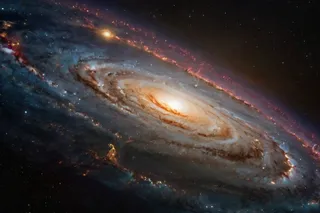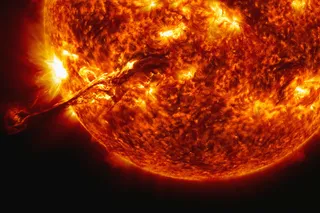Black holes are the closest things we have left to mythological monsters — the “Here be dragons” warning of our cosmological maps. The supermassive black holes at the center of galaxies deserve particular notice. They are the unbelievably massive anchors of the hundreds of billions of solar systems in our galaxy, as well as others.
But not all interstellar communities are growing. Some are "quenched" galaxies, where new star formation appears to have ground to a halt. Why and how this happens has been frustrating astronomers and astrophysicists for 20 years. A recently published study makes a strong case that the most important factor is at the very core of those galaxies, and the supernatural strength of black holes: their mass.
University of Cambridge astronomer Joanna Piotrowska, the study's lead author, explains that despite the complexity of black holes, galaxies and astrophysics in general, there are only two basic ways ...














